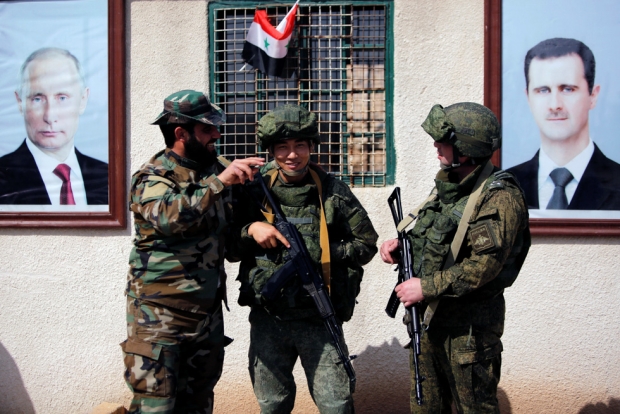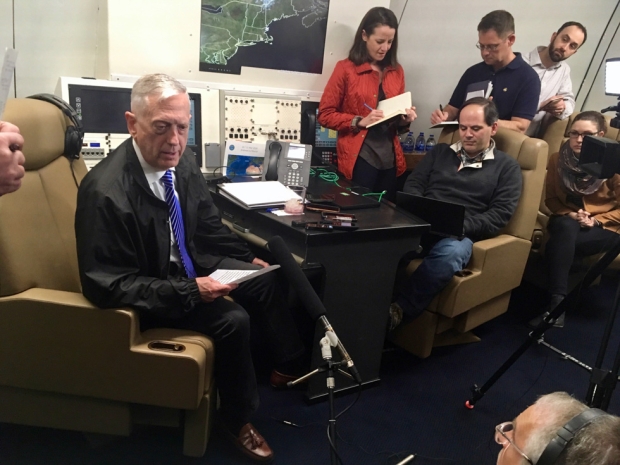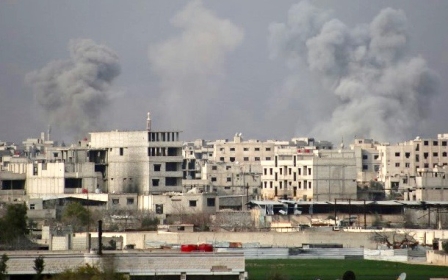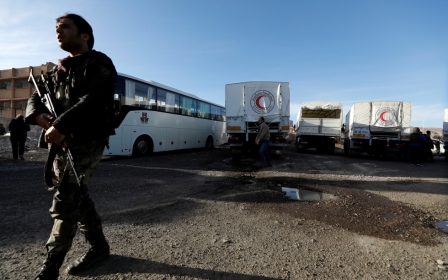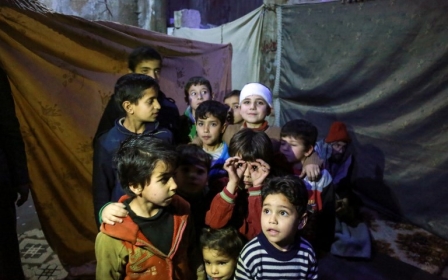Syrian rebels considering Ghouta evacuation deal: Rebel official
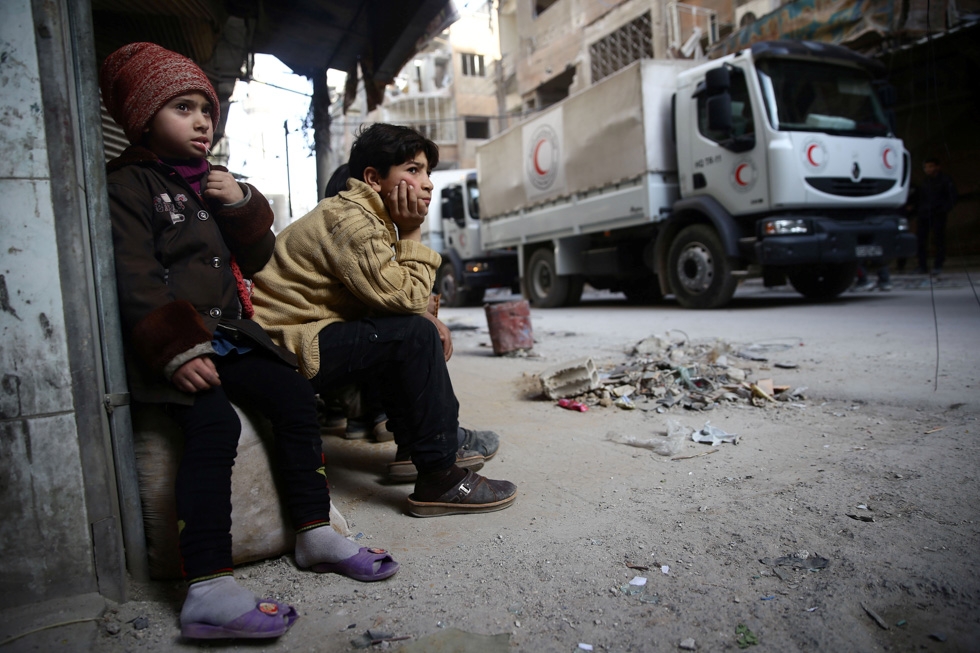
A delegation from Syria's rebel-held Eastern Ghouta was on Sunday considering a partial evacuation deal to halt a fierce government offensive, a negotiator and monitor said as fighting continued on the enclave's eastern front.
The two main rebel groups in the region, which borders Damascus, have firmly and repeatedly denied negotiating with the Syrian government.
But on Sunday, as the government's Russian-backed assault entered its fourth week, influential figures in one rebel-held town were considering a possible evacuation offer.
A committee from Hammuriyeh met with government representatives on Saturday, a member of the committee told AFP, speaking on condition of anonymity.
"The committee discussed a proposed reconciliation that would guarantee exit for those that want to leave, both civilians and rebels, from Hammuriyeh to other areas in Syria under rebel control," the delegation member said.
Civilians and fighters may be bussed to rebel-controlled parts of Daraa province in Syria's south, or to Idlib in the northwest, held by rebels and a former al-Qaeda affiliate.
"The committee is meeting on Sunday to take a decision and inform the regime. If they do not agree, there would be a resumption of the military operation on Ghouta, including Hammuriyeh," the delegation member said.
More than 1,100 civilians have been killed in the onslaught on the biggest rebel stronghold near Damascus since it began three weeks ago with a withering bombardment, said the Syrian Observatory for Human Rights.
It said there was intense fighting on several fronts accompanied by a government artillery barrage, continuous air raids and attacks by helicopters.
On Saturday, Syrian government forces capture the town of Misraba, cutting off a key route between the northern towns of Douma and Harasta and the south of the enclave. Syrian forces also came within firing distance of the highway linking Harasta and Douma, restricting movement between the towns and effectively cutting the enclave into three isolate parts.
In recent years, the regime has recaptured several areas around Damascus from rebels by pursuing fierce military offensives culminating in evacuation deals.
Russian involvement in talks
The Syrian Observatory for Human Rights, a Britain-based war monitor, said negotiations for evacuations from multiple towns were ongoing on Sunday.
"A decision could be taken any moment for Hammuriyeh, Jisreen, and Saqba," said Observatory head Rami Abdel Rahman.
All three towns are controlled by Islamist rebel group Faylaq al-Rahman, which has repeatedly denied engaging in talks with the regime.
"There are no direct or indirect negotiations with the Russian enemy or its allies," said the group's spokesman, Wael Alwan, late on Saturday.
"No one has been authorised to negotiate on behalf of Ghouta's revolutionaries, institutions, or the Free Syrian Army."
But it has admitted engaging in talks with the United Nations and world powers on Hayat Tahrir al-Sham (HTS), a jihadist group once linked to al-Qaeda.
Those negotiations resulted last week in Jaish al-Islam releasing 13 HTS members it was holding. The jihadists and their relatives were then evacuated to northwest Syria on Friday.
HTS, which has a small presence in parts of Ghouta, has not commented publicly on the negotiations.
Russian news agency Interfax said on Sunday that the Russian Centre for Reconciliation, based alongside Russia's air force at the Hmeimim military airport in western Syria, was facilitating negotiations with rebels in Ghouta.
It did not specify which rebel factions were engaging in the talks.
"The fighters are considering the possibility of evacuating several dozen residents in exchange for an opportunity to leave the area with their families," a representative of the centre, Vladimir Zolotukhin, told Interfax.
Mattis warns Syrian on 'weaponised gas'
In Muscat, US Defense Secretary Jim Mattis said it would be "very unwise" for Syrian government forces to use weaponised gas, citing unconfirmed reports of chlorine attacks in eastern Ghouta.
Visiting Oman, Mattis stopped short of threatening to retaliate against Syrian forces if a chlorine attack were confirmed. But he noted America's cruise missile strike on 6 April 2017, on a Syrian air base over a sarin gas attack and said President Donald Trump had "full political manoeuvre room" to take whatever decision he believed was appropriate.
Damascus and Moscow accuse rebels of firing on anybody who tries to leave, something the insurgents deny though a Reuters witness said there was shelling and gunfire near one exit route on Friday.
Rebels and some Eastern Ghouta residents contacted by Reuters have said people there do not want to come back under President Bashar al-Assad's rule for fear of persecution, an idea the government says is groundless.
On Saturday, the army found 60 civilians cowering in a basement in Mesraba. Activists in Eastern Ghouta said thousands of people from Mesraba had already fled into Douma, further into the rebel territory, before the army took it.
Defeat in Eastern Ghouta would deliver the rebels their biggest blow since December 2016, when a government offensive drove them from Aleppo, their largest urban stronghold.
Middle East Eye propose une couverture et une analyse indépendantes et incomparables du Moyen-Orient, de l’Afrique du Nord et d’autres régions du monde. Pour en savoir plus sur la reprise de ce contenu et les frais qui s’appliquent, veuillez remplir ce formulaire [en anglais]. Pour en savoir plus sur MEE, cliquez ici [en anglais].


